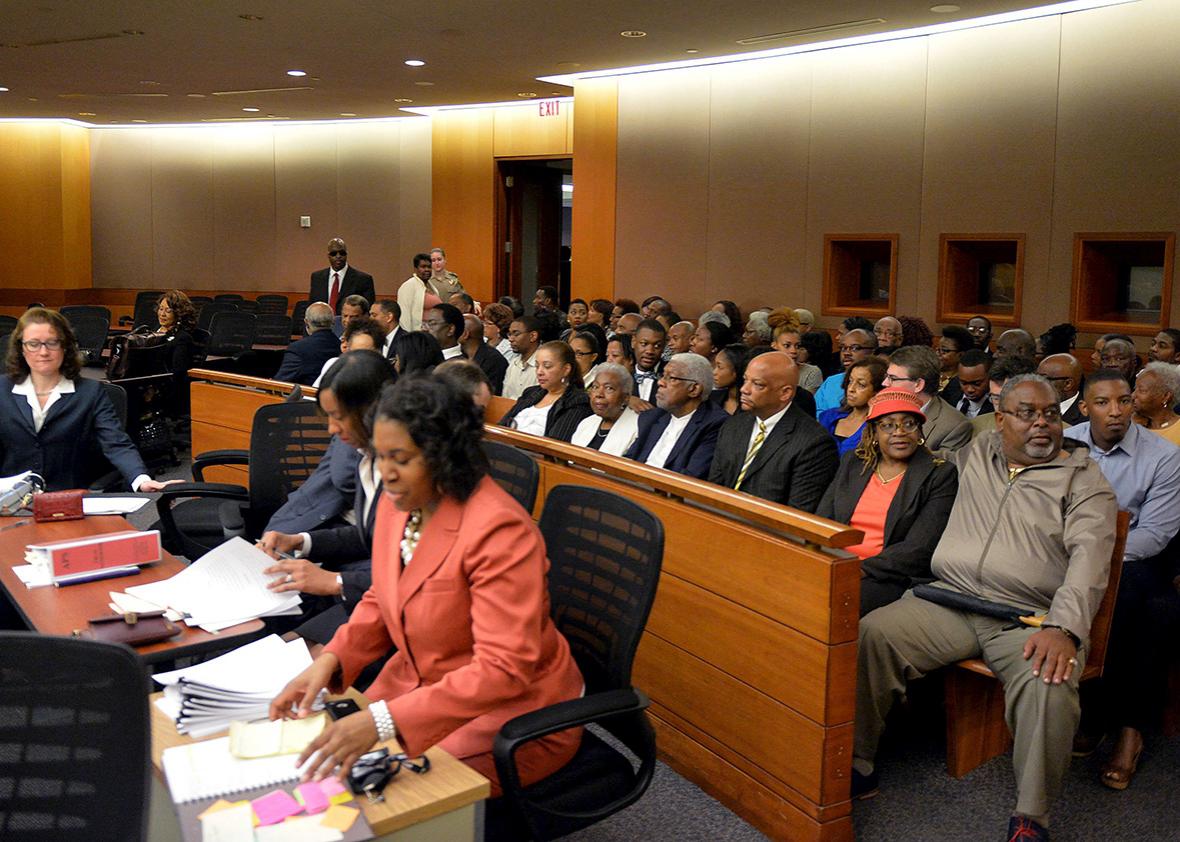The final defendant in the Atlanta standardized test cheating scandal was sentenced to a year in prison and another four years of probation this week.
Former elementary school teacher Shani Robinson was nine months pregnant in April when a jury found her and 10 other educators, mostly ex-teachers and principals, guilty of racketeering and other charges related to their role in inflating student test scores on the 2009 Criterion-Referenced Competency Tests. At the time, Fulton County, Georgia, Superior Court Judge Jerry Baxter handed down unexpectedly stiff sentences to the convicted defendants who refused a plea deal but postponed Robinson’s sentencing until after she gave birth.
On Tuesday, Baxter appeared unmoved by Robinson’s relatives’ pleas for mercy, saying that he had offered Robinson a reprieve from jail in exchange for an admission of guilt: “I reached out to your daughter through her attorney and she rejected her avenue out of this mess,” Baxter told the defendant’s mother.
Baxter wondered aloud why more of the convicted defendants hadn’t just accepted responsibility for their actions instead of facing jail time: “I don’t know if people just drank the Kool-Aid,” he said. “Going over the transcript, the evidence is overwhelming. It’s an ugly, ugly chapter.”
The Atlanta Public Schools cheating scandal has made national headlines since December 2008, when the Atlanta Journal-Constitution first reported on irregularities in test scores at five elementary schools. Two months later, Beverly Hall—the superintendent now widely considered responsible for the culture of cheating that led to teachers holding after-school “erasure parties” and changing students’ test answers—was named national superintendent of the year and Atlanta’s schools, with their sharply rising test scores and graduation rates, were lauded as a “model of urban school reform.”
Over the next year, the Atlantic Journal-Constitution and then a state investigation uncovered widespread evidence of cheating at numerous schools. By the end of 2010, the superintendent of the year had resigned in disgrace.
Of the nearly 180 employees eventually found complicit, 35 were indicted in March 2013. Twenty-one of these reached plea agreements, and two—including Beverly Hall—died of cancer before they could stand trial. Only one of the remaining dozen, a special-education teacher, was acquitted. Two accepted plea deals after the trial in exchange for lighter sentences.
Robinson’s sentencing represents the end of just one act of the Atlanta saga. The nine convicted educators, including Robinson, won’t serve time until the appeals process has run its course, which could take years—and cost a whole lot of money. The defendants’ lawyers told the judge Tuesday that they could no longer work on their cases because their clients had run out of money to pay them. That means the appeals will likely end up with contract lawyers out of the public defender’s office, which could cost taxpayers more than $1 million. “So this is just another monumental expense and problem that this whole thing has caused,” the judge said.
